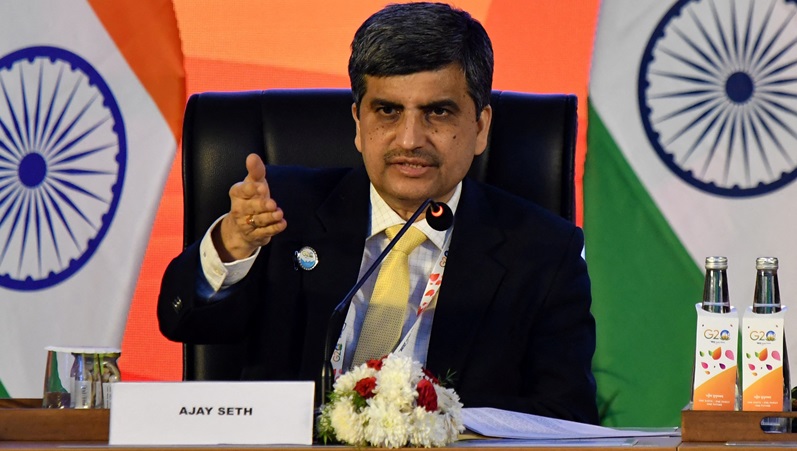Ajay Seth said the EU’s proposals on their carbon border adjustment mechanism were “not practical” for a developing country like India
India has declined to accept a European Union proposal to levy higher taxes on its carbon-producing industries, which the 27-nation bloc said it was willing to offset when those products enter its borders, a top official told Reuters.
The latest suggestion was made by an EU delegation led by Gerassimos Thomas, director general for taxation and customs union within the European Commission, who defended the proposed carbon border adjustment mechanism (CBAM) in its meetings with Indian officials.
Ajay Seth, India’s economic affairs secretary, told Reuters in an interview: “Their suggestion is not practical. Their team had come and met us … the solution they are offering doesn’t work for a developing economy like India.”
New Delhi has conveyed its stance to the EU delegation, labelling the proposed CBAM as unfair and detrimental to domestic market costs, Seth said.
Sign up to get our weekly newsletter straight to your inbox, plus breaking news, investigations and extra bulletins from key events
The EU last year approved the world’s first plan to impose tariffs on imports of high-carbon goods, including steel, aluminium and cement, aiming to reach net-zero greenhouse emissions by 2050.
Negotiations between the EU and India continue at a “technical level,” an EU statement said after the delegation’s visit earlier this month.
EU officials are trying to win over countries like China, South Africa and India that have opposed the CBAM.
The European Commission delegation had told India that the carbon tax’s primary intent was not to raise revenue but to ensure the supply of greener goods to the EU market.
The EU delegation suggested India could implement its own carbon tax to fund advancements in supply chains and cut carbon emissions, while maintaining its share of the EU market.
Higher costs
Seth said the greening of the steel industry would entail higher costs for the economy, and “with income levels which are one-twentieth of the income levels in Europe, can we afford a higher price? No, we can’t.”
Assuming there is no domestic Indian plan to tax high-carbon production – and incentivise a
Read More

